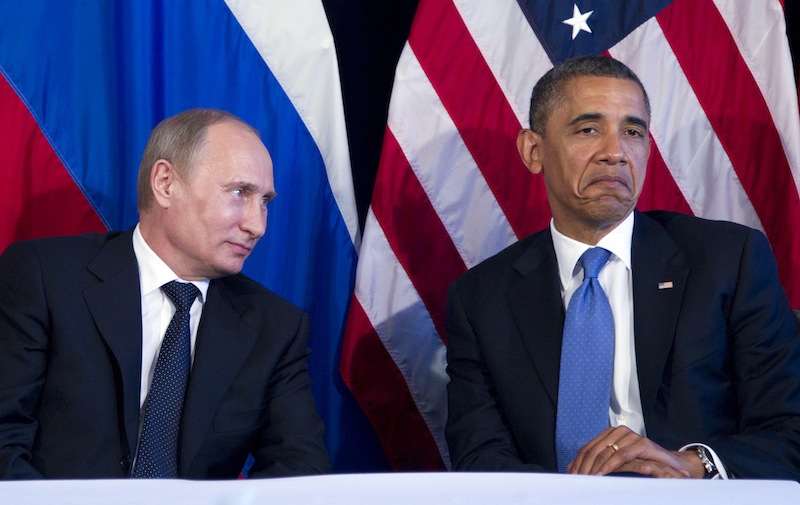TOKYO (AP) — When top Western leaders decided to stay away from Russian President Vladimir Putin’s Winter Olympics, he wasn’t exactly left friendless: he has the heads of leading Asian nations and others to help show the world that not everyone is put off by his human rights record and the anti-gay law he championed.
In both China and Japan, gay rights are not a hot-button political issue and officials say they do not link human rights with the Olympics.
Chinese President Xi Jinping, the highest-profile foreign head of state attending, congratulated the Russian president on the Olympics and hailed their countries’ growing ties, which frequently challenge Western domination of global affairs.
China’s state-controlled media have barely mentioned the Russian law that bans pro-gay “propaganda” that could be accessible to minors. It was signed by Putin in July.
That’s partly because of Beijing’s strict insistence on non-interference in other countries’ internal affairs, but also a reflection of relatively little public discourse on gay rights.
Japanese leader Shinzo Abe was also attending the opening ceremony and is to meet with Putin on Saturday.
“Japan pays close attention to the human right situation in Russia, but we do not link it with Prime Minister Abe’s attendance at the Sochi Olympics,” Japan’s Foreign Ministry said in a statement Friday.
In Japan, awareness about minority rights — not just for gays, but also for migrant workers and ethnic Koreans — lags behind the West, said Sonoko Kawakami, campaign manager for Amnesty International Japan.
“The prime minister’s actions reflect that,” she said.
Skipping the event, in addition to Obama, are French President Francois Hollande, British Prime Minister David Cameron, German President Joachim Gauck and Brazilian President Dilma Russeff.
Sochi organizers have declined to provide the names of the leaders attending the opening ceremony or the countries they represent, but say some 66 leaders — including heads of state and international organizations — are joining the games.
Those known to be attending include U.N. Secretary-General Ban Ki-Moon and the leaders of Greece, Bulgaria, Lebanon, Morocco, Armenia, Afghanistan, Finland, Iceland, Latvia, Lithuania, Mongolia, Montenegro, Serbia, Tajikistan, and the monarchs of Monaco and Luxembourg.
Xi is the first Chinese head of state to attend the opening ceremony of an international sporting event outside of China. State newspapers devoted their front pages Friday to his meeting with Putin, which was also the lead item on state broadcaster CCTV’s national news.
Russia and China have frequently joined forces in the United Nations and elsewhere to challenge Western leadership in global affairs. They have also found common cause in coming under criticism from Western governments, media and human rights groups. During the Beijing Summer Olympics in 2008, China faced many complaints about the stifling of dissent.
“The West has constantly found fault with Russia’s holding of the games,” China’s state-run newspaper Global Times said in an editorial Friday. It added that the criticism underscores the connection between the two countries.
Abe’s meeting with Putin will be their fifth since Abe became prime minister about 13 months ago, underscoring his efforts to broaden Japan’s diplomatic ties. Japan hopes a closer relationship will help foster economic and security relations as well as resolve a long-standing territorial dispute that has prevented the two nations from signing a peace treaty officially ending their World War II hostilities.
___
Associated Press writers Christopher Bodeen in Beijing and Yuri Kageyama in Tokyo contributed to this report.
Copyright 2014 The Associated Press. All rights reserved. This material may not be published, broadcast, rewritten or redistributed.






